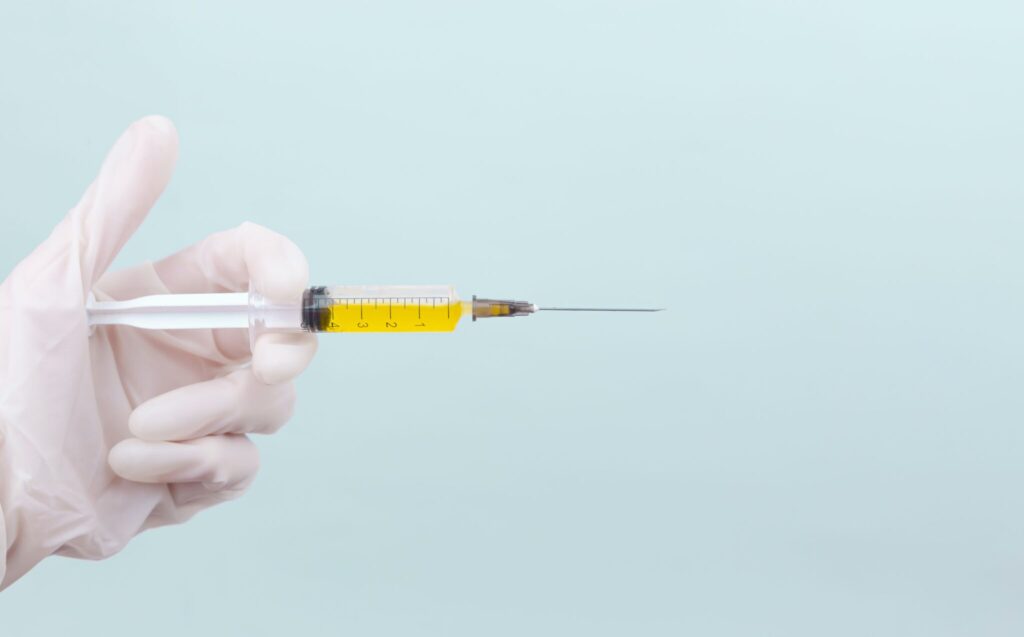News Team member Stephanie Oehler describes how the online "trad-wife" aesthetic fuels the flames of the anti-vaccination movement during the second-largest measles outbreak of the 21st century.

Over a year has passed since the Food & Drug Administration (FDA) authorized the Pfizer-BioNTech COVID-19 vaccine for emergency use in the United States. Since that time, over 214 million individuals–nearly 65% of the nation’s population–have been fully vaccinated against the novel coronavirus. Still, a large portion of the populace remains unvaccinated with recent statistics indicating a plateau in immunization rates since June 2021. Recent nationwide survey data suggest that many Americans, and others throughout the world, remain unsure of the safety, legitimacy, and salience of COVID vaccination. Hanging in the balance of vaccine reluctance is an unexpected, yet important group of individuals: healthcare providers (HCPs).
COVID-19 Vaccine Hesitancy
While interpretations of the term are various and vast, to many vaccine hesitancy is understood as feelings of apprehension toward or fear of vaccination. The vaccine reluctance that has marked the COVID-19 health crisis is not a new phenomenon. In fact, fear of vaccination has existed since the very conception of vaccines themselves. The first formulation of the cowpox vaccine, developed in the 1700s, was received with strong opposition from those who thought it sacrilegious or outrightly outlandish.[2]
The novelty and rapid development of the COVID-19 vaccines have prompted many in the public to question their safety. Yet, public health officials and experts continue to stress the safety of the vaccines as well as the importance of widespread vaccination in the interest of achieving herd immunity–and hopefully an end to the pandemic. Perhaps a more immediate concern, however, is the health and safety of healthcare workers (HCWs) who remain at the greatest risk for COVID-19 infection and thus look to public compliance for protection. Clinicians have assumed an instrumental role in alleviating some of the public unease and skepticism toward COVID-19 vaccination. Despite their contributions toward boosting public confidence, recent research study data show that vaccine hesitancy is common among healthcare workers, which presents an additional hurdle to efforts to reduce collective vaccine reluctance.

Sources of Doubt
Much like the general population, the factors contributing to vaccine reluctance among HCPs are various. There are of course those who refuse the vaccine on religious or medical grounds, referred to as the vaccine exempt. Others also question the safety and efficacy of the COVID-19 vaccines. In a recent study of almost 2,000 healthcare professionals in France, conducted in February 2021, 23% of respondents declared themselves hesitant toward COVID-19 vaccination while 4% were expressly opposed to receiving any of the vaccines. Existing skepticism toward the influenza vaccine was most highly correlated with hesitancy and opposition among study participants. Participants also expressed concern over the reported side effects of the AstraZeneca vaccine, particularly rare blood clotting complications and flu-like symptoms.[6]
Similar trends in the attitudes and beliefs of vaccine-hesitant HCPs and HCWs have emerged elsewhere in the scientific literature. A 2019 study of 108 employees at an Italian pediatric facility assessed influenza vaccine hesitancy among participants. Only 30% of respondents felt the influenza vaccine was “safe and effective” for use.[5] Another study, a survey of 65 providers from Croatia, France, Greece, and Romania, found concerns about vaccine effectiveness, safety, and testing duration to be the most frequently mentioned of all worries voiced by interviewees. Some participants also mentioned distrust of health authorities, especially those with government and/or pharmaceutical affiliations, as a major deterrent to vaccination, believing that financial incentives might encourage companies and agencies to expedite vaccine development prematurely.[3]
Other research has established a link between media communication and vaccine mistrust among HCPs. Providers look to online sources, including social media and popular news outlets, for updates concerning recent health events. In the process, however, some become susceptible to uncertainty bred by widespread misinformation and conspiracies.[4] The consequences of this messaging, one study found, are often lasting and can work to reinforce negative ideas about vaccination.[3,4]
Existing research shows that a large enough portion of the healthcare workforce remains unsure about vaccination for themselves and others. How to overcome this obstacle in the interest of public and provider safety remains an important question for public health authorities, one that has prompted officials and organizations to probe more deeply into the feelings and opinions of healthcare providers in order to seek out a solution.
Stigma and Mandates
As a trusted source of health advice, a great deal of stigma and judgment befalls vaccine-reluctant healthcare providers. [1,4] Fear of termination and of being discredited or condemned by peers and patients are among the potential consequences that deter HCPs from vocalizing their vaccine skepticism.[1] Yet, experts in vaccine hesitancy research note identifying hesitancy as a necessary step toward boosting vaccine confidence among reluctant providers. [1,3,4]
Healthcare professionals, particularly physicians, tend to be knowledgeable of authentic vaccine facts and information by way of professional training and education. Still, some providers admit to feeling unenlightened about important vaccine data and related information, especially for new vaccines. This lack of adequate education and awareness may contribute to the dubiety toward vaccines held by both practitioners and members of the general public.[3]
Recent attempts to increase COVID-19 vaccination rates among HCWs have ushered in vaccine mandates for employees, introduced both by state and private healthcare systems. Not all mandates have been met with full cooperation, however. While some see the requirement as a necessary safety measure on behalf of patients and providers, others see mandates as an infringement upon personal autonomy and even more reason to be skeptical of health authorities. So, the question persists: What then is the most appropriate approach to resolving vaccine hesitancy among providers, and perhaps just as important, what are the potential consequences if we do not?

Collective Consequences for Individual Actions
Safeguarding the individual autonomy of clinicians, one could argue from an ethics standpoint, should be a foremost priority for healthcare employers. HCPs must regularly engage in autonomous decision-making in order to work judiciously and effectively. Even beyond the scope of professional authority, those who have argued against vaccine requirements maintain that individuals should have complete control over matters of personal health. In other words, whether to become vaccinated or not should ultimately fall in the hands of each individual clinician. And still, compelling arguments can be made for why such a stance is far more nuanced, and that some individual actions do not always result in individual consequences.
In an infectious disease outbreak healthcare providers are most at risk for infection. The pathways of exposure are boundless, however, meaning patients are just as susceptible to infection by providers. Thus, the decision to avoid vaccination quickly creates an appreciable ethical dilemma for practitioners, who may in fact be putting patients at risk for infection. This concern becomes even more critical for those who care for vulnerable populations (e.g., immunocompromised persons).
Forging A Way Forward
The SARS-CoV-2 virus remains an imminent threat to human health across the globe. And while the progress made over the past two years has been momentous, the journey ahead remains full of ambiguity. Thus, until the end is reached, whenever that time may be, collective efforts to preserve individual and common well-being seem to be the best way forward. How best to reconcile this joint obligation with the independent rights of individuals, including and especially our healthcare providers perhaps possesses an even less straightforward answer, but surely not an impossible one to find. Mandates has proven marginally effective for improving uptake rates, but experts have faith in targeted education and training to convince practitioners, and the public, of the safety and salience of vaccines.[1,3,4,5]
To learn more about the COVID-19 vaccines and for new developments on pandemic guidelines and guidance, consider the following resources:
- About COVID Vaccines: ​​https://bit.ly/3HH1Tu8
- COVID-19 Vaccines: https://bit.ly/3HA3bHD
- The COVID-19 Pandemic: https://nyti.ms/3pDoh1E
References
- Heyerdahl, L. W., et al. (2022). Doubt at the core: Unspoken vaccine hesitancy among healthcare workers. The Lancet Regional Health — Europe, 12. https://doi.org/10.1016/j.lanepe.2021.100289
- Hussain, A., Ali, S., Ahmed, M., & Hussain, S. (2018). The Anti-vaccination Movement: A Regression in Modern Medicine. Cureus, 10(7). https://doi.org/10.7759/cureus.2919
- Karafillakis, E., et al. (2016). Vaccine hesitancy among healthcare workers in Europe: A qualitative study. Vaccine, 34(41), 5013—5020. https://doi.org/10.1016/j.vaccine.2016.08.029
- Karafillakis, E., & Larson, H. J. (2018). The paradox of vaccine hesitancy among healthcare professionals. Clinical Microbiology and Infection, 24(8), 799—800. https://doi.org/10.1016/j.cmi.2018.04.001
- Paoli, S., et al. (2019). Assessing Vaccine Hesitancy among Healthcare Workers: A Cross-Sectional Study at an Italian Paediatric Hospital and the Development of a Healthcare Worker’s Vaccination Compliance Index. Vaccines, 7(4). https://doi.org/10.3390/vaccines7040201
- Paris, C., et al.(2021). COVID-19 vaccine hesitancy among healthcare workers. Infectious Diseases Now, 51(5), 484—487. https://doi.org/10.1016/j.idnow.2021.04.001
- Renault, M. (2022, February 9). Vaccine Hesitancy Has Seeped Into Home Health Care. The Atlantic. https://www.theatlantic.com/health/archive/2022/02/home-health-care-covid-vaccination/622029/
